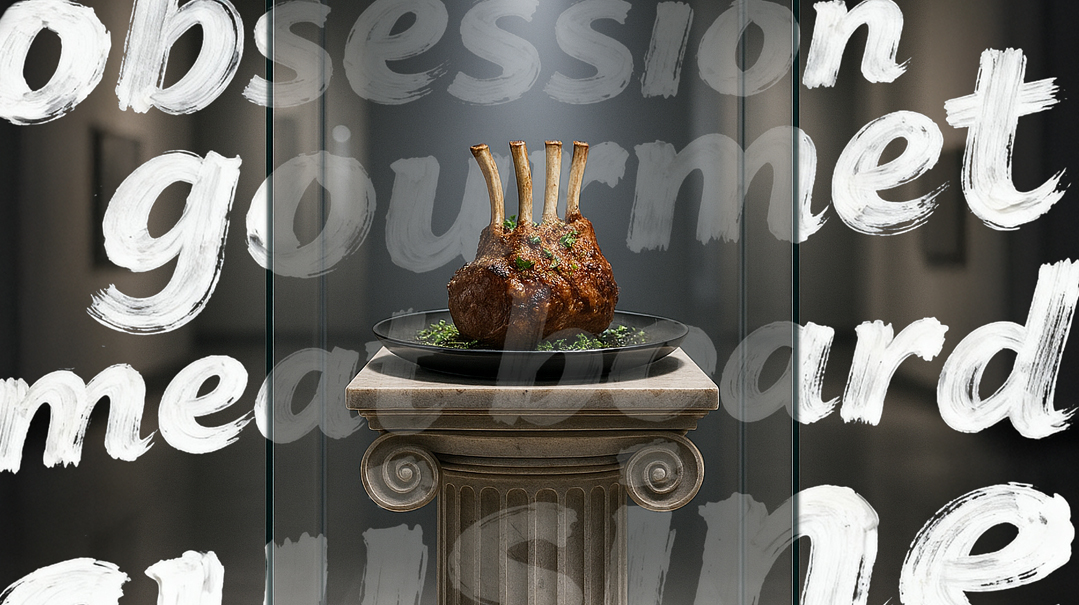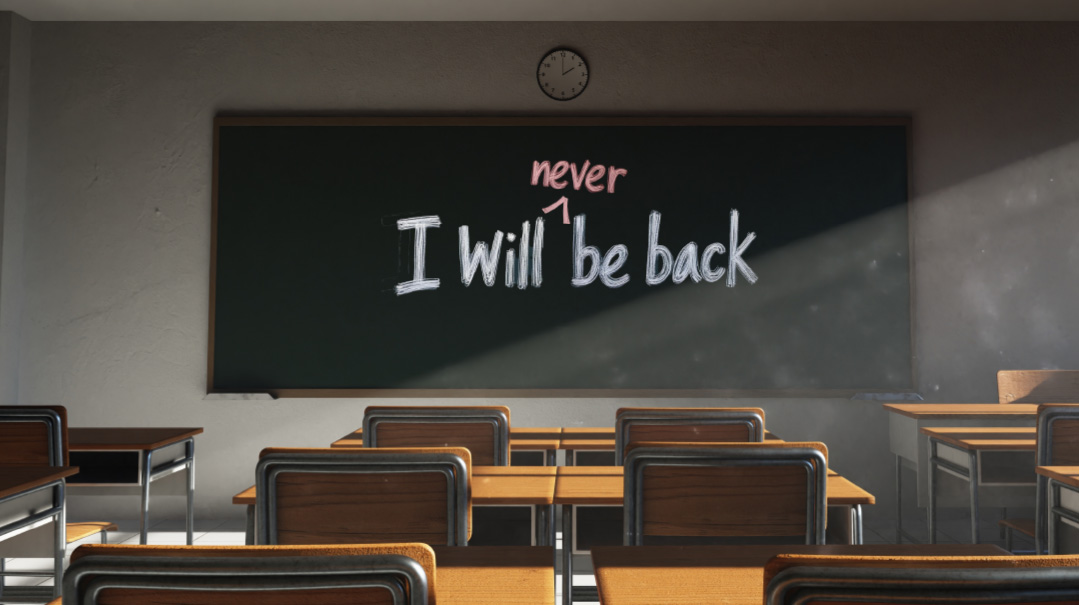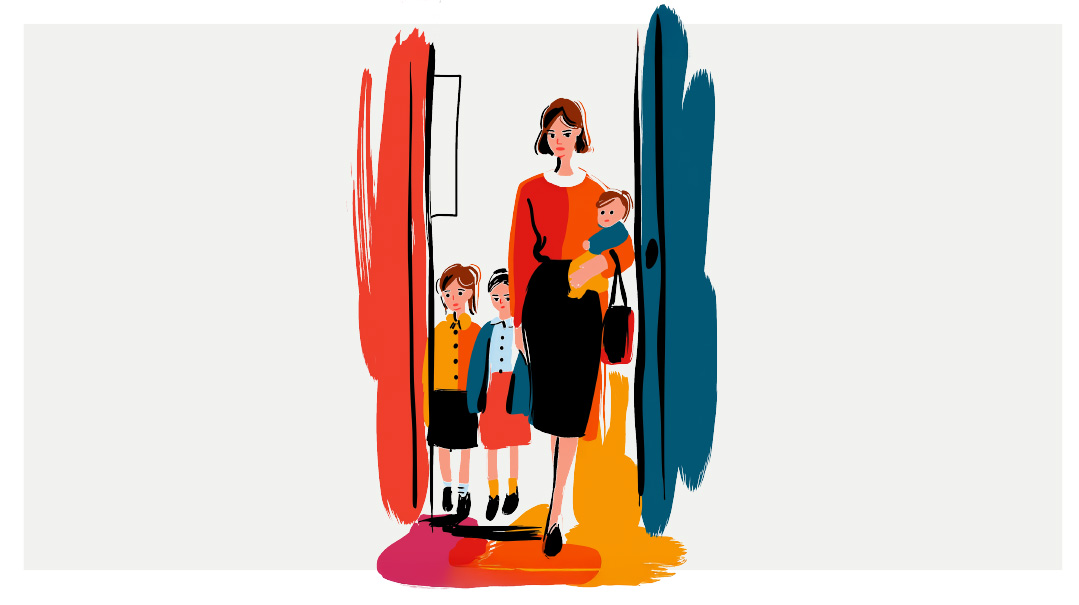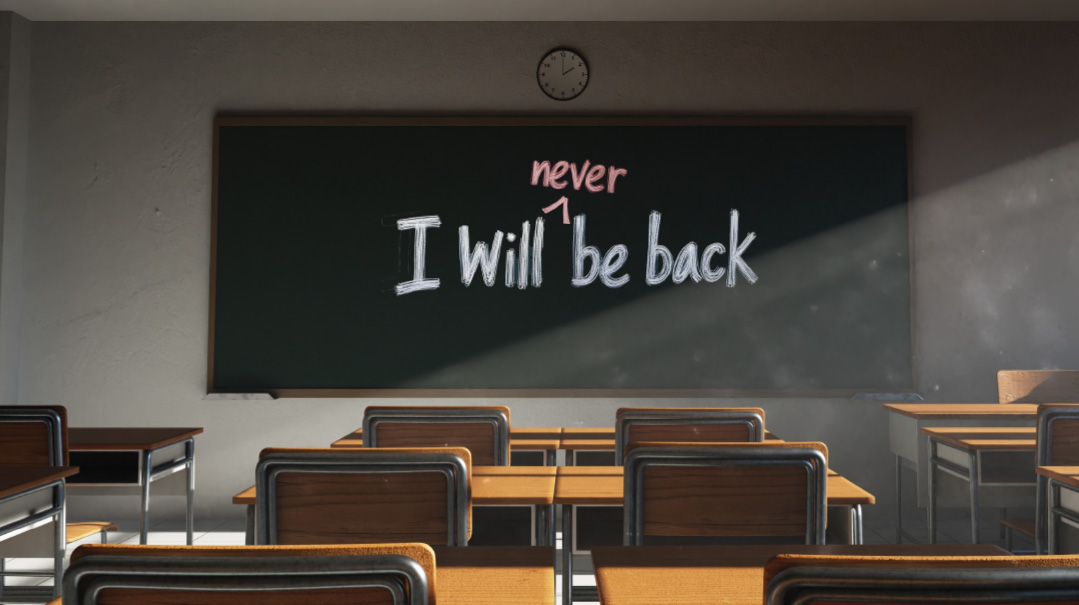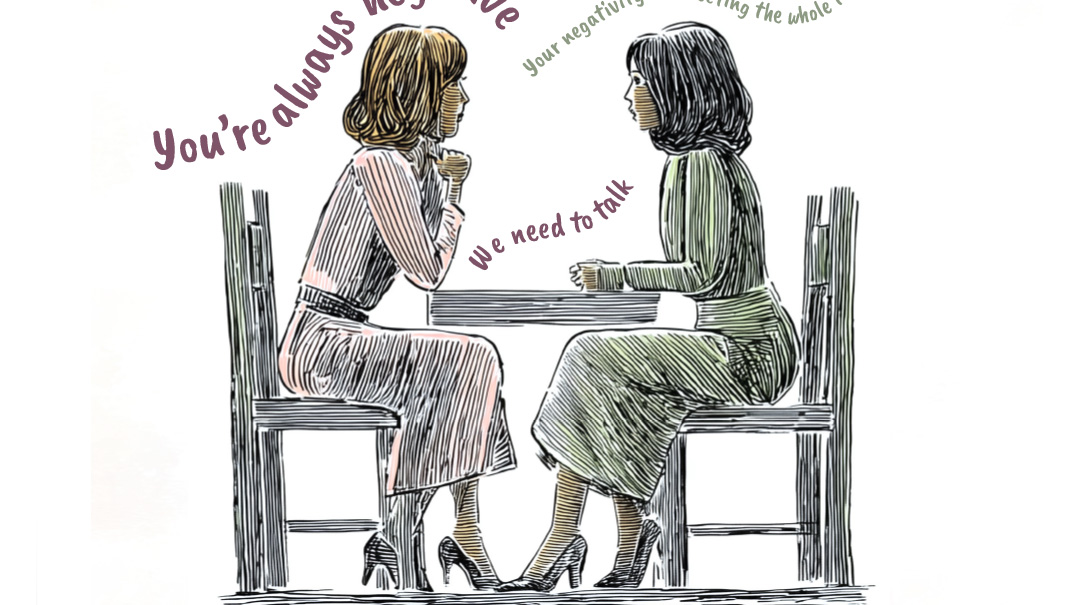Watch Your Mouth
| September 13, 2022Why isn't my generation combating our children's chutzpah?

When we were kids (which wasn’t all that long ago), one Look from either of my parents would get us back on track in seconds. Both of them could do it, and do it well. The Look was a lecture, a redirection, and a warning all in one. It cured anything and everything: fighting, bad table manners, eavesdropping, and, most of all, chutzpah.
Maybe The Look is extinct, I don’t know. But I do know that (in my extremely unscientific observations) there has been a direct and clear link to the loss of The Look and the rise of pure, unmitigated chutzpah.
My kids are normal: they fight with their siblings, then giggle and hug each other minutes later (then immediately revert back to fighting); they leave socks on the floor; they use their crayons to scrawl notes to me that make me tear up.
I’ve also noticed that they usually go through stages of particular challenges one at a time, which I find extremely considerate. Recently, my oldest was struggling with chutzpah — reacting explosively to instructions or directions he didn’t agree with, and including insults or commentary about my husband or me.
We addressed it, and continue to address it, but — perhaps because I was so attuned to my child’s behavior — I began noticing this pattern everywhere. When I asked a friend if she had suggestions for dealing with chutzpah, she told me she’s been dealing with it in spades, and noticing it in the kids of her siblings and friends. Which got me thinking. Are we experiencing a chutzpah epidemic?
A few months ago, we had my sister and her family for Yom Tov. Her sweet children filed in wearing coordinating outfits, smiles on their angelic faces as they excitedly greeted my kids. We usually see each other fleetingly at simchahs, but a whole Yom Tov together? Heaven.
Until she asked her oldest to please run down to the guest room to get her baby a pacifier. “Get it yourself!” her 14-year-old said, her voice dripping with contempt and irritation. “I’m not your slave! I was keeping the baby quiet the whole drive over here, and she’s not my responsibility.” The rest of Yom Tov passed in a similar vein, with daily examples of derision and disrespect from this Bais Yaakov girl.
“Teenagers,” my sister said to me with an eye roll.
“Don’t talk to your mother like that,” my brother-in-law offered once or twice.
It wasn’t just my son and my niece. The more I looked for it, the more I found it. Stories of good boys in good yeshivos mistreating their English teachers, stories of kids feeling absolutely free to speak however they wanted to the adults in their lives, with no fear of consequence.
So why is this happening? Are we just lazy parents? I have more questions than answers, but I do have a few theories.
The world is a more dangerous place than it was back in the 80s and 90s, especially for a kid. There are so many things that are just not appropriate or acceptable for frum families, so many precautions that need to be taken, so many more ways for kids to get into serious trouble. It’s hard to be a kid now, and it’s also so much harder to be a parent now.
Frum parents today have a staggering number of things they must say no to. And being a no-man all the time is not the way to foster a comforting and close relationship with your kids. We want our children to not just respect us, but to enjoy spending time with us.
What’s getting lost in the big picture of maintaining a loving relationship with our child is remembering that our child needs to be a person who we like, who knows what lines not to cross and when they’ve crossed them. We’re so afraid of our children getting sucked into the outside world that we develop tunnel vision, so desperate to get our kids to like us that we forget we also have to make sure they are likeable.
Now, I’ll give my sister the benefit of the doubt; she wasn’t in the privacy of her own home, and I’m not saying that giving her daughter an embarrassing public talking-to would have been the right approach. But I do know that when my niece was explaining why she didn’t need to listen to her parents, my kids looked up from their games, eyes wide at the tone and words their cousin was using freely.
Later, when I came to his room to wish him good night, my son rolled his eyes and asked me why his cousin gets away with everything and we’re so mean to him all the time. Great. We’ve spent years working to cultivate an atmosphere of respect in our home. Was our niece going to tear down everything we painstakingly built?
My husband and I just need to model correct behavior, you might say. But I’m afraid that modeling alone will not get the job done here. My sister and her husband are both sweet, erlich people. They’re functioning and respectful adults. I don’t think they’re modeling derision or contempt, ever, and I certainly am not either, yet it’s something our kids are all too comfortable trying on for size.
We all need to get accustomed to saying no in a way that leaves no room for interpretation. Somehow, I manage it when my three-year-old begs for markers and coloring books on Shabbos, so why is it so hard when it’s my 12-year-old telling me I’m such a nerd?
What’s going to happen when these kids grow up and are husbands, wives, employees? When is the magic day when they’ll snap out of it and realize that of all the people who deserve a basic level of respect, their parents deserve it most? Assuming this will happen on its own is an exercise in futility, not to mention foolishness.
And here’s the thing: kids want boundaries. No kid feels good when she’s treating her mother like trash. She may not be able to stop herself, but deep down, she’s hoping you will stop her. She senses that she’s spiraling, she hates the feeling, and she needs you to draw the lines that will create secure boundaries in which everyone is treated with respect.
What I know for sure is I’m not comfortable with my kids growing up in a world where disrespect is normalized. I don’t care if this comes at the expense of me being the chill mom or the cool mom (that was never going to happen anyway), but I can’t do this in a vacuum. Because no matter how much my kids know, no matter how many reminders I give them, when they see their friends and peers disrespecting their parents, teachers, and bus drivers, it blurs the hard line we’ve tried so hard to draw.
I get it. We parents still feel like we’re teenagers, like those days weren’t so long ago. But they were, and our kids will be there soon. Even if we still feel like we’re 17, we’re the adults in the room. And it’s time to start acting like it.
(Originally featured in Family First, Issue 810)
Oops! We could not locate your form.


